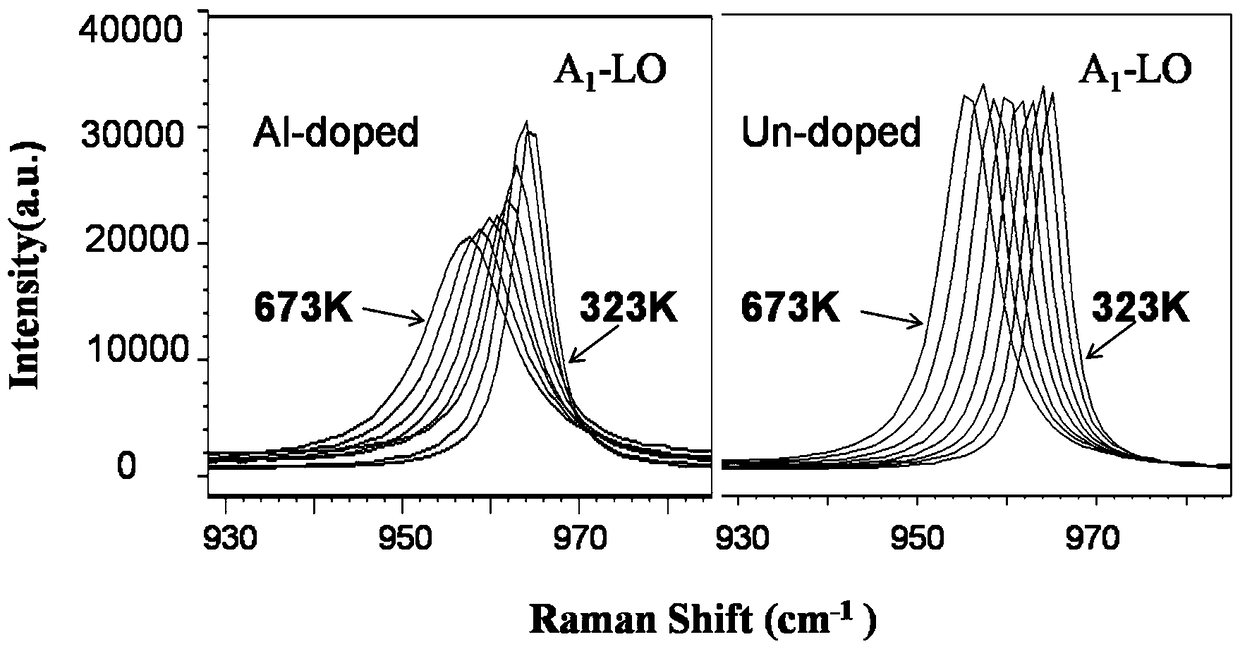A nondestructive evaluation of p-type silicon carbide crystals
A technology of silicon carbide and crystal, which is applied in the field of non-destructive determination of p-type silicon carbide crystal, can solve the problem of indistinct chip color distinction, and achieve the effect of automation and program control
Inactive Publication Date: 2018-12-21
NANTONG UNIVERSITY
View PDF3 Cites 2 Cited by
- Summary
- Abstract
- Description
- Claims
- Application Information
AI Technical Summary
Problems solved by technology
Method used
the structure of the environmentally friendly knitted fabric provided by the present invention; figure 2 Flow chart of the yarn wrapping machine for environmentally friendly knitted fabrics and storage devices; image 3 Is the parameter map of the yarn covering machine
View moreImage
Smart Image Click on the blue labels to locate them in the text.
Smart ImageViewing Examples
Examples
Experimental program
Comparison scheme
Effect test
Embodiment
[0015] Such as figure 1 shown.
the structure of the environmentally friendly knitted fabric provided by the present invention; figure 2 Flow chart of the yarn wrapping machine for environmentally friendly knitted fabrics and storage devices; image 3 Is the parameter map of the yarn covering machine
Login to View More PUM
 Login to View More
Login to View More Abstract
The invention relates to a non-destructive judgment of p-type silicon carbide crystal, which uses a variable temperature Raman spectrum to carry out spectral measurement on a p-type silicon carbide crystal sample, wherein the incident direction of the detection light is along the (000-1) direction of the silicon carbide wafer, the variable temperature measurement is a temperature range from room temperature to 800 K, and the temperature interval is 50 K. By analyzing and comparing the carrier-sensitive A1 longitudinal optical modes, whether the sample is p-type doped or not can be determined according to the change of the intensity and the peak position of A1 longitudinal optical modes. As the spectroscopic analysis method is adopt, carrier concentration of p-type silicon carbide crystal can be measured and analyzed without electrodes plated like Hall measurement. The detection process can be automated and programmed. The outgoing products can be inspected comprehensively. The detection process can also be used in the inspection of 2, 3, 4, 6 inches wafer products in the market.
Description
technical field [0001] The invention relates to a semiconductor single crystal performance testing technology, in particular to the non-destructive judgment of p-type silicon carbide crystals. Background technique [0002] Silicon carbide is the third-generation semiconductor material, and it is a wide-bandgap semiconductor material following the first-generation element semiconductors silicon and germanium, and the second-generation compound semiconductors gallium arsenide and indium phosphide. Compared with the previous two generations of semiconductor materials, silicon carbide has better physical and electronic properties and chemical stability. It has high thermal conductivity, strong breakdown field, and large drift rate of saturated electrons, so it has broad prospects in the preparation and application of high-temperature, high-frequency, high-power, corrosion-resistant and radiation-resistant devices, and is widely used in national defense, aerospace, communications...
Claims
the structure of the environmentally friendly knitted fabric provided by the present invention; figure 2 Flow chart of the yarn wrapping machine for environmentally friendly knitted fabrics and storage devices; image 3 Is the parameter map of the yarn covering machine
Login to View More Application Information
Patent Timeline
 Login to View More
Login to View More Patent Type & Authority Applications(China)
IPC IPC(8): H01L21/66
CPCH01L22/12
Inventor 李祥彪杨培培崔俊黄云婷姚诗怡苏延东陈宇
Owner NANTONG UNIVERSITY
Features
- R&D
- Intellectual Property
- Life Sciences
- Materials
- Tech Scout
Why Patsnap Eureka
- Unparalleled Data Quality
- Higher Quality Content
- 60% Fewer Hallucinations
Social media
Patsnap Eureka Blog
Learn More Browse by: Latest US Patents, China's latest patents, Technical Efficacy Thesaurus, Application Domain, Technology Topic, Popular Technical Reports.
© 2025 PatSnap. All rights reserved.Legal|Privacy policy|Modern Slavery Act Transparency Statement|Sitemap|About US| Contact US: help@patsnap.com

